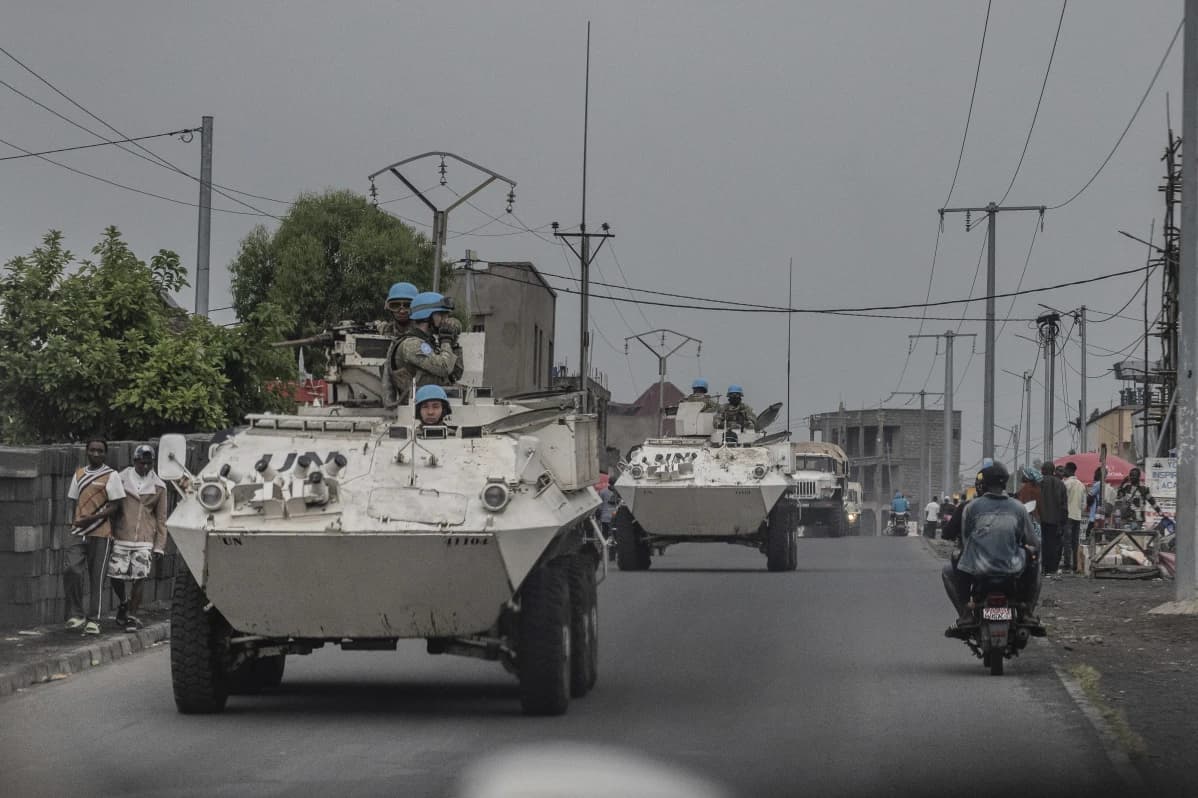YAOUNDÉ, Cameroon – Around 70 bodies, including those of women, children and elderly people, were discovered on Feb. 15 in a church building in the village of Maiba, in Lubero territory in North Kivu Province of the Democratic Republic of Congo (DRC).
Civil services say these people – who were found, bound and decapitated – were killed with knives. No armed group has claimed responsibility for the killing, but there is growing suspicion that the massacre was carried out by the Allied Democratic Forces (ADF) – a militia allied to the Islamic State.
International Christian Concern quotes local sources as revealing that the people were all Christians.
It says members of the militia detained many Christian villagers before tying them up in a local protestant church and decapitating them with machetes.
Pontifical charity Aid to the Church in Need reports that the ADF operates both in Uganda and the DRC , and has been terrorizing the local population for more than a decade.
“Islamist groups have stepped up attacks and assaults on isolated villages, already killing thousands of Congolese civilians,” it stated.
The ADF is just one of the over 120 militias – including the Rwanda-backed M23 – fighting in the east of the DRC, and struggle mostly over mineral resources and territorial control that has resulted in the deaths of thousands, and the displacement of millions.
The latest massacre of 70 Christians might seem like persecution, but Maria Lozano, Director of ACN International Press and Media Department, says there needs to be a more careful analysis to determine the motives.
“We cannot speak of persecution across the entire country, as most of the violence occurring in the DRC has no religious connection. It is important to be cautious and avoid oversimplifying or misleading people in our analysis,” she told Crux.
She explained that the recent massacre is likely to result from “a mixed of reasons.”
“One of them is that these victims were unable to resist or endure the forced march. When the rebels take hostages, they force them to travel with them, either as reinforcements for their group or as forced labor for their war effort. When there’s loot, they need people to carry it. If you get tired on the way, you’re done. I believe that’s what happened to these 70 people. The church was the best place to get rid of them,” she told Crux.
She said the fact that the people were killed in a church doesn’t necessarily mean they were targeted in anti-Christian pogroms.
“Most of the fighting in the DRC is related to the competition for resources,” she noted.
The DRC is an incredibly rich country, with its mineral wealth estimated at $24 trillion.
This vast wealth includes a variety of minerals that are critical for various industries and technologies.
For instance, its vast reservoir of cobalt is essential for the production of rechargeable batteries used in electric vehicles, smartphones, and laptops. Its cobalt is widely used in electrical wiring, plumbing, and the manufacturing of electronics. Its Coltan (Columbite-Tantalite) is used to produce tantalum capacitors, which are vital components in electronic devices like mobile phones, laptops, and cameras, and its gold is used in jewelry, electronics, and as a financial asset.
Lozano argues that the lure of such mineral wealth happens to be the major driver of the conflict in the DRC.
“These [armed] groups engage in highly lucrative activities, particularly in exploiting the region’s abundant natural resources. It is evident that Islamization is not their primary goal. For example, coltan refineries are operating in Rwanda, despite the fact that the country has no coltan resources of its own. This rare mineral is extracted from the DRC and illegally exported across the border to Rwanda,” she told Crux.
One other reason to not hastily see links between the massacres and anti-Christianity is the fact that the nations involved in the fighting – Rwanda, Uganda and other countries – are largely Christian nations.
Yet, underneath the exploitation of minerals, there could be one group with a dual purpurpose: The ADF.
Lozano said the group has “a clear religious component.”
“In recent years, the ADF, with ties to the Islamic State, has been responsible for violent incursions, and it has been reported that this group specifically targets Christians,” she said.
“We reported about attacks from ADF against Christians already in 2021 and 2024; and in fact, the Islamic State itself claimed responsibility for attacks in North Kivu,” she explained.
Lozano, however, balks at whatever motives armed groups put forward for carrying out attacks, explaining that the sanctity of human life is all that should matter, and therefore there should be no justification for terminating it.
“It is important to emphasize that the fact that there is a ‘motive’ behind the massacre does not make it any better or more justifiable. Kidnapping the victims, using them as forced labor, or enslaving them is by no means an acceptable way to treat human beings. This type of abuse is an extension of violence, and similar situations have also occurred in other contexts. For example, in Nigeria, we have witnessed hundreds of women being forced to work as slaves in terrorist camps, where their lives are worthless, and they are ruthlessly exploited. This underscores the deeply dehumanizing nature of these conflicts,” she said













